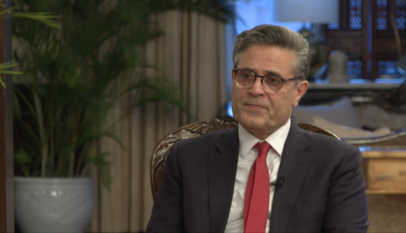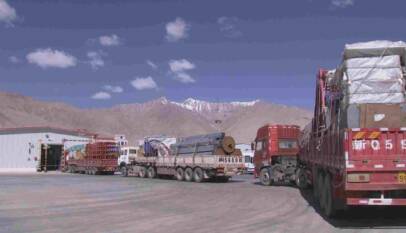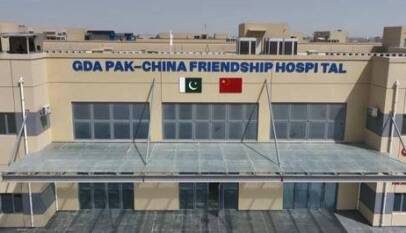Experts term Pak-China relations have gone through historic change since inception of CPEC
While addressing a virtual roundtable organized by the Institute of Strategic Studies in joint collaboration with China Institutes of Contemporary International Relations (CICIR), Dr. Fu Xiaoqiang, Vice-President of CICIR has said that Pak-China relations have gone through a historic change since the inception of the CPEC. He also said that it is the flagship project of China’s Belt and Road Initiative (BRI) and it is meant to alleviate the socio-economic woes of Pakistan. He cautioned against the pitfalls of bloc politics which are looming over the horizon and could curtail the steady flow of Pak-China relations. Former ambassador of Pakistan to China Masood Khalid,Dr. Yan Shuai, Deputy Director, Institute of International Security Studies CICIR,Dr. Wang Shida, Deputy Director, Institute of South Asian Studies CICIR,Dr. Talat Shabbir from ISS also spoke on the occasion.
Islamabad : Dr. Fu Xiaoqiang, Vice-President. China Institutes of Contemporary International Relations (CICIR) has said that Pak-China relations have gone through a historic change since the inception of the China-Pakistan Economic Corridor (CPEC).
Dr. Xiaoqiang was addressing a virtual roundtable organised here by the Institute of Strategic Studies in joint collaboration with CICIR.
Dr. Xiaoqiang said that it is the flagship project of China’s Belt and Road Initiative (BRI) and it is meant to alleviate the socio-economic woes of Pakistan. He cautioned against the pitfalls of bloc politics which are looming over the horizon and could curtail the steady flow of Pak-China relations.
Former ambassador of Pakistan to China Masood Khalid said that this Eurasian conflict has reshaped the geostrategic landscape of Europe and has exposed the long-standing fissures among the democracies on the European peninsula.
Dr Yan Shuai, Deputy Director, Institute of International Security Studies, CICIR, said that after the Taliban took over in Kabul, the overall security environment improved. However, there is still a fertile ground for terrorist organisations. In order to remain credible, the Taliban will have to comply with the international norms and present a moderate face. Ms. Amina from ISS opined that the Taliban government is confronted with a myriad of challenges right now and the biggest ones are the non-existent economy of the country and weak institutions. Unless the financial situation in the country improves, Afghanistan will remain a breeding ground for the terrorist organisations.
Dr. Wang Shida, Deputy Director, Institute of South Asian Studies, CICIR, touched upon the humanitarian crisis in Afghanistan and stated that the US aid goes back to the US and, contrary to this, Chinese aid comes in the form of food assistance and help in facilitating the land routes and air corridors for providing humanitarian assistance to the war-stricken people.
Dr. Talat Shabbir from ISS offered a comprehensive view of the current Afghan situation and emphasised employing a consolidated regional approach towards Kabul.
Dr Shang Yue, Dr Sameera Imran, Aizaz Chaudhry and Dr Hu Shisheng also spoke on the occasion.
Gwadar Pak-China Friendship Hospital pioneers laser-assisted bladder stone surgery
China-aided Gwadar Pak-China Friendship Hospital has debuted in conducting an operation to…









